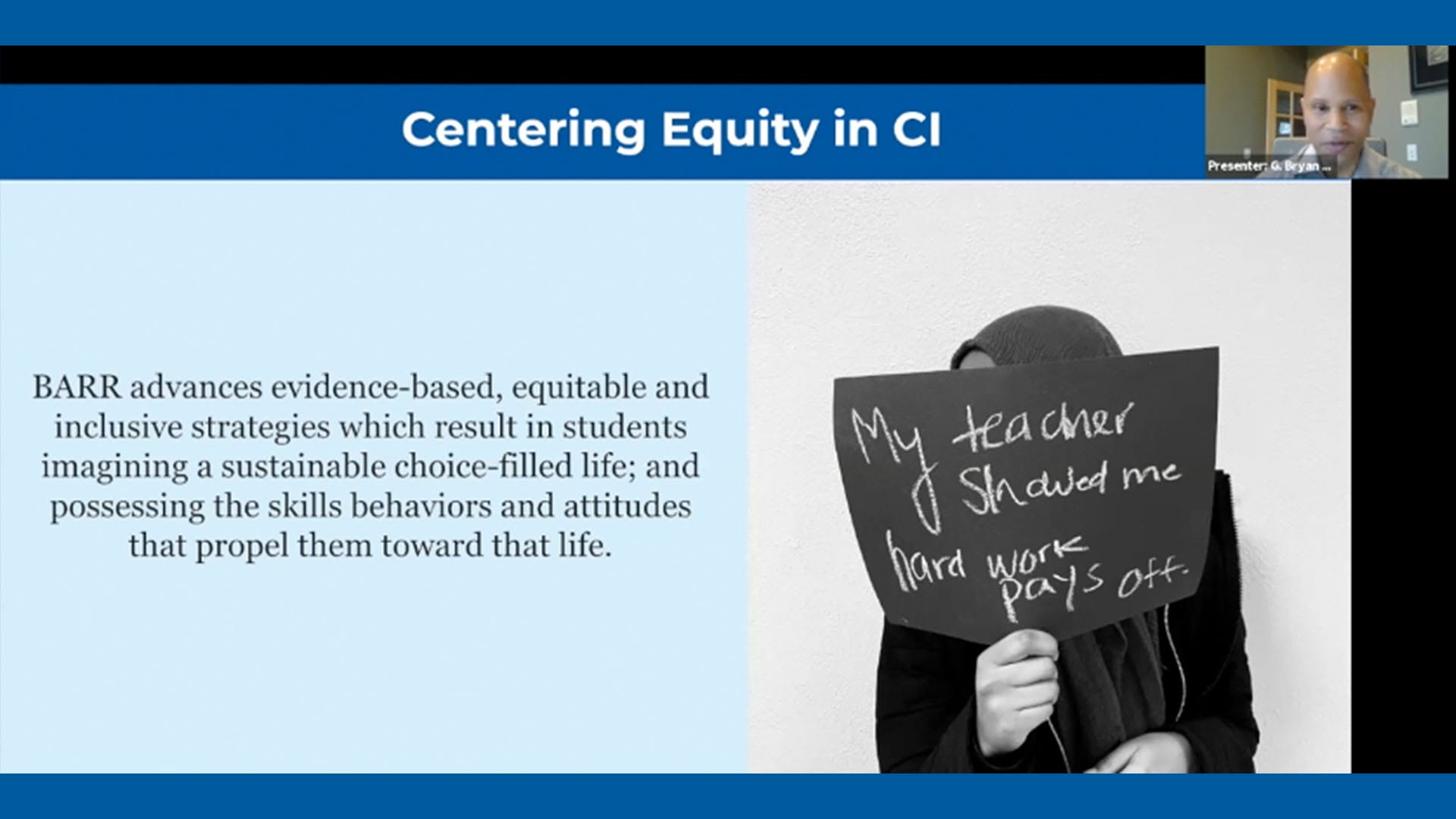After a most challenging year, BARR educators are teaming together to continue prioritizing equity and closing the opportunity gap throughout the country.
The BARR team recently had an opportunity to present at the Carnegie Foundation’s Summit on Improvement in Education about Placing Equity at the Center of the Work: Closing the Opportunity Gaps in BARR Schools. Presenters included BARR’s Founder and Executive Director Angela Jerabek, NSI Associate Director G. Bryan Fleming, Associate Director of Strategic Initiatives Christina Ritter, and Senior Research Scientist Anu Sharma. Check out the event recording!
The presentation was kicked off by Jerabek providing the history of BARR. She explained how the BARR Network impacts more than 180 schools and 100,000 students across the country through two pillars – positive, intentional relationships and the use of real-time data.
“We use a systemic disruption model and we use C.I. (continuous improvement) to address gaps and problems,” Jerabek said. “We are really trying to leverage bringing forward transparency in data so all of the staff can see what the data is and then be able to really leverage those relationships to be able to make sure that we are problem-solving as a team.”
During the engaging session, Sharma shared the positive outcomes proven by BARR’s 20 years of research.
“Here’s how BARR works – it gets results by working with teachers to change their attitudes. They feel increased self-efficacy, they believe they can actually facilitate positive strength-based changes in students, they feel supported by administrators and then they, in turn, change their own behaviors,” Sharma said.
In order to close the opportunity gaps in schools, Fleming discussed the importance of centering equity in all continuous improvement work. He shared how BARR inspires educators and schools to think differently about systems that perpetuate learning inequities. Fleming highlighted how guided and authentic conversations can be pivotal to centering equity in schools amongst educators and families.
“These intentional conversations….lead to the generation of evidence-based, equitable and inclusive strategies,” Fleming said.
An example shared was how when educators take the time to explain to families how the student information system works, it can lead to equitable decisions. When families understand the advanced courses being offered to them, they are going to be able to make the best course registration choices. Fleming also discussed how one-on-one conversations with educators can be pivotal in the college admission process to ensure families and students are equipped with enough knowledge to make the best decision for them. These are both examples of how when educators take the time to focus on relationships, they can address students’ needs – as both a person and learner.
“At BARR we know that we cannot improve at scale what we cannot measure, and we cannot accelerate improvements unless we are in constant relationship with one another: staff-to-staff, staff-to-student, and student-to-student,” Ritter said.
Ritter discussed how Block and Risk Review meetings are opportunities for educators to discuss each student through a strength-based lens. These meetings give every educator a voice to contribute to the conversation and hold each other accountable to provide the most equitable education at their school.
“The conversation is the relationship,” Ritter emphasized.
By providing coaching, enhancing a structure to engage in intentional conversations, and keeping students’ voices at the center of the conversation, BARR supports schools so each and every student is closer to the opportunity to succeed.
